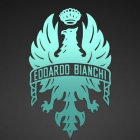Have anyone try to read/write to USB flash drive using XMOS?
I have seen a lot of example as device, but not much resources as a host.
read and write to USB flash drive Topic is solved
-
jsaksris
- Member++
- Posts: 29
- Joined: Wed Jul 04, 2018 4:06 pm
-
mon2

- XCore Legend
- Posts: 1913
- Joined: Thu Jun 10, 2010 11:43 am
I think it will be a nightmare to use the XMOS for USB flash drive mating as a USB host. Consider to split your project with a low cost but with proven IP STM32 CPU - there are many examples you can build up with a low cost solution but use the XMOS for the benefits of the high speed I/O - audio, etc. Marry the 2 concepts together for the best results and to be operational sooner than later.
https://stm32f4-discovery.net/2014/08/l ... x-devices/
https://stm32f4-discovery.net/2014/08/l ... x-devices/
-
jsaksris
- Member++
- Posts: 29
- Joined: Wed Jul 04, 2018 4:06 pm
That would mean connecting the XMOS to STM32 using the USB interface?
What would be the best practice for STM32 to receive the audio stream
If not for a USB flash drive.. would writing to an SD card (16 channel at 24bits 48kHz) be something more reasonable?
What would be the best practice for STM32 to receive the audio stream
If not for a USB flash drive.. would writing to an SD card (16 channel at 24bits 48kHz) be something more reasonable?
-
akp

- XCore Expert
- Posts: 580
- Joined: Thu Nov 26, 2015 11:47 pm
Uh, the STM32 has a pretty decent TDM interface (SAI hard IP). It can handle lots of channels, if you need 16 ch in and 16 ch out if you get a chip with 2 SAI blocks (i.e. 4 audio sub-blocks) each audio sub block can handle up to 8ch / 32bit (can also do 24 bit/sample if you don't want 32 bit/sample). So if all you're doing is reading and writing wav files and talking to an adc and dac then I don't know if you'd need an XMOS chip... no offence to XMOS as they make a very good product.
